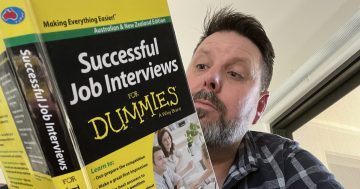Carrie Stemke* offers some suggestions to keep in mind next time you’re interviewing someone
 Usually, when an interview doesn’t go well, the applicant leaves wondering what they did wrong and the employer wishes people would prepare better before coming in.
Usually, when an interview doesn’t go well, the applicant leaves wondering what they did wrong and the employer wishes people would prepare better before coming in.
However, I’d like to suggest what will likely be a hard pill to swallow: A lot of people aren’t good at conducting interviews, and it’s a big part of the problem.
Over the years, I’ve had some comically bad experiences.
I was once called for a job interview at a place I was really excited to work for, and when I got there, the interviewer told me he hadn’t had time to review my resume but would go through it now (which he did, and he then proceeded to tell me I wasn’t qualified right then and there).
Thankfully, that’s not a common situation.
But, there are a few other things I and other colleagues have noted repeatedly that ought to be addressed.
Here are a few suggestions to keep in mind next time you’re interviewing someone.
1) Be on time and respectful.
It can be easy to forget that part of the purpose of an interview is so the applicant can decide if they’d really like to work at your company.
Plus, the way you act during the interview will say a lot about the office culture – particularly the way they think of their employees.
Showing up 45 minutes late, displaying a frustrated demeanour, or taking a call from a coworker in the middle of the interview (yep, all these things have happened) send the applicant the very clear message that you don’t respect them.
2) Be honest.
Once or twice, I or a friend applied to a job that sounded great on paper.
When we went in for the interview (or in her case, after she accepted the job), it became quite clear the company had lied in the job description.
In my case, the job’s main responsibility was incredibly tedious work that had clearly driven people off, so they learned to downplay it in the ad.
In my friend’s case, she discovered the organization really had people working six days a week, and anyone who stuck to the 9-5 schedule risked their job.
There’s a lot to unpack here, but I’ll stick to my main point: Just be honest.
Lying about what a job really entails creates a toxic work environment, demoralizes employees, erodes trust in leadership, and keeps turnover rates high.
3) Know what you’re looking for.
A clear (honest) job description is a great way to communicate both to the applicant and to yourself what you’re looking for in an ideal candidate.
They’ll be better able to answer your questions and prepare their applications, and you’ll save time and effort by weeding out people who simply don’t fit your very clear requirements.
Last year, for instance, I wrote a job posting for an Editorial Assistant.
It was not remotely fancy: just a list of duties I would need the person to be able to do and the hours they needed to be available.
Although I conducted a number of interviews before finding the right candidate, my clarity made it extremely easy to evaluate each person I called in.
4) Write down a list of questions and keep it in front of you.
Having the questions already written out left me free to actually listen to the answers and ensured I didn’t forget anything important.
Additionally, it also meant that each interviewee was evaluated the exact same way and I could rest assured they truly met each requirement.
Furthermore, they provided a helpful exit strategy when I was talking to candidates who showed they weren’t the right person in the first five minutes.
I just skipped down several questions and then politely concluded the interview, all without having to make up an awkward excuse.
When both applicants and employers strive to improve their interview skills and make the conscious choice to be honest, the result is better for everyone.
The job market is complicated enough these days, but having a conversation with a potential employer to see if you’re the right fit for each other is one healthy step toward improvement and better working conditions for all.
*Carrie Stemke is the Senior Editor and Event Content Producer at AccountingWEB, a publication for accounting and finance professionals.
This article first appeared at ellevatenetwork.com.











